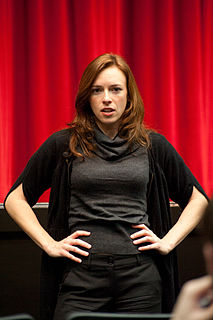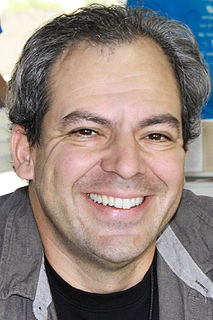A Quote by Martha C. Nussbaum
As we tell stories about the lives of others, we learn how to imagine what another creature might feel in response to various events. At the same time, we identify with the other creature and learn something about ourselves.
Related Quotes
We can tell people abstract rules of thumb which we have derived from prior experiences, but it is very difficult for other people to learn from these. We have difficulty remembering such abstractions, but we can more easily remember a good story. Stories give life to past experience. Stories make the events in memory memorable to others and to ourselves. This is one of the reasons why people like to tell stories.
Almost everywhere we find . . . the use of various coercive measures, to rid ourselves as quickly as possible of the child withinus--i.e., the weak, helpless, dependent creature--in order to become an independent competent adult deserving of respect. When we reencounter this creature in our children, we persecute it with the same measures once used in ourselves.
I really am just trying to tell stories. But stories are often grounded in larger events and themes. They don't have to be - there's a big literature of trailer-park, kitchen-table fiction that's just about goings-on in the lives of ordinary people - but my own tastes run toward stories that in addition to being good stories are set against a backdrop that is interesting to read and learn about.
When you learn to read and write, it opens up opportunities for you to learn so many other things. When you learn to read, you can then read to learn. And it's the same thing with coding. If you learn to code, you can code to learn. Now some of the things you can learn are sort of obvious. You learn more about how computers work.
The positive thing about collaborating is that I cannot get distracted by coding work, because I cannot waste the other collaborator's time in the same way as I can my own. And it's always good to learn how the other person works, learn about techniques, learn social things like: how do you communicate with another person? The music I make with other people I'm much more confident about, I'm a little bit less judgemental of the outcome than with my own stuff because I know it's not only me, it's a more outside of me. Sometimes I even like them better than my own tracks.
The wonderful thing about books is that they allow us to enter imaginatively into someone else’s life. And when we do that, we learn to sympathize with other people. But the real surprise is that we also learn truths about ourselves, about our own lives, that somehow we hadn’t been able to see before.
Each of us is comprised of stories, stories not only about ourselves but stories about ancestors we never knew and people we've never met. We have stories we love to tell and stories we have never told anyone. The extent to which others know us is determined by the stories we choose to share. We extend a deep trust to someone when we say, "I'm going to tell you something I've never told anyone." Sharing stories creates trust because through stories we come to a recognition of how much we have in common.
Some of the songs are inspired by personal things that have happened. Others have been inspired by other people's stories, you know, like someone that witnesses something and so I tell the story through my own eyes. And some songs are just about how I feel about the world and others about the places that we have travelled to.









































